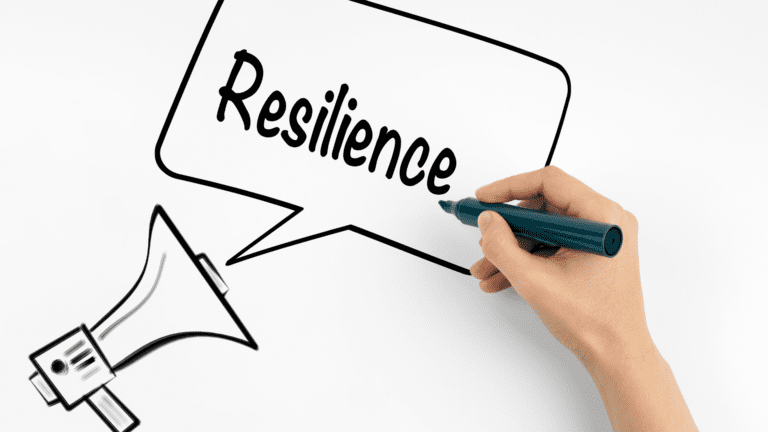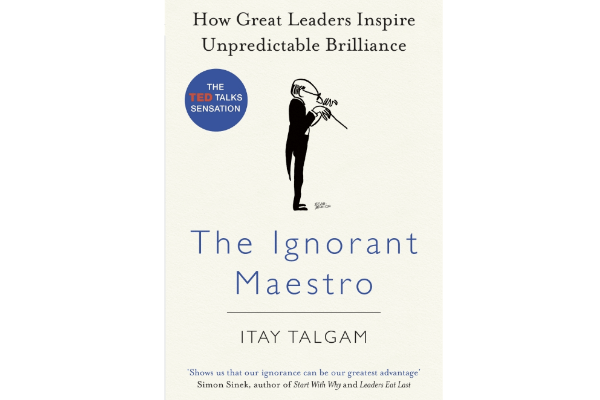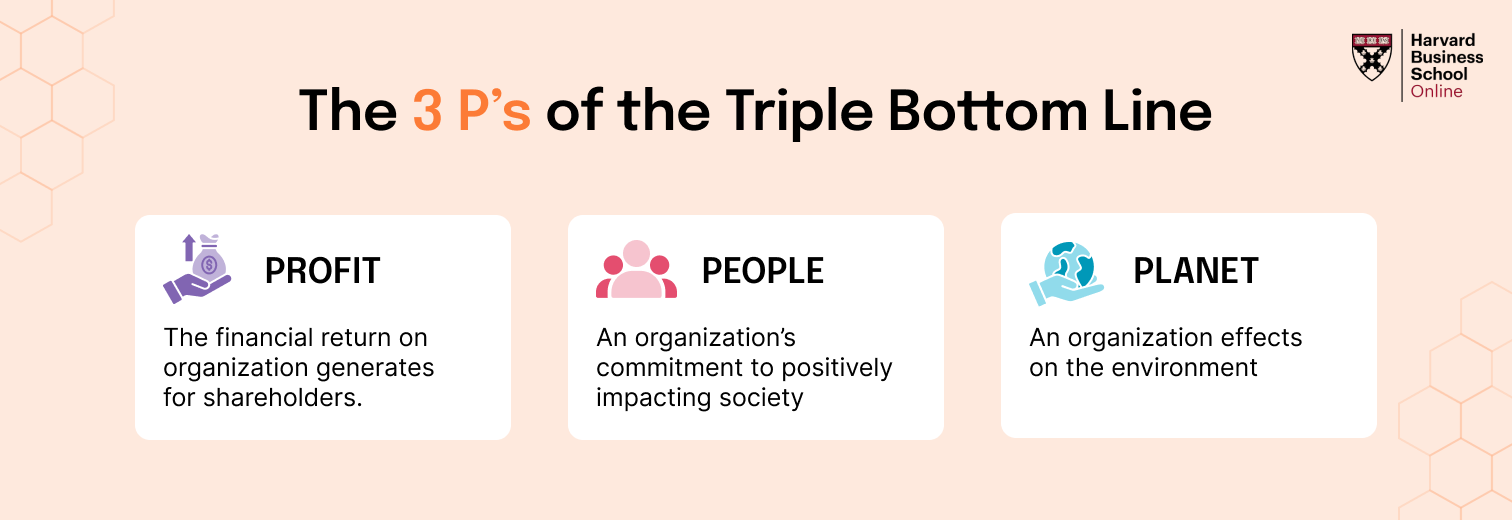In a post-Covid world, if there’s one trait that we’ve seen rise to the top across organizations and leadership teams, it is resilience. Not just the textbook definition of “bouncing back” from setbacks – but the deeper, often messier, journey of growing through what you go through.
In our work with leaders across industries, we’ve noticed that emotional resilience is no longer a “soft skill” – it’s a strategic necessity. Which is why, when one of our colleagues recommended Option B by Sheryl Sandberg and Adam Grant, it instantly sparked our interest.
As a team that’s constantly working with leaders navigating change, ambiguity, and personal crossroads, we found this book deeply resonant. What follows is more than just a book review – it’s a reflection on why resilience matters in the workplace, and how we, as leaders and L&D professionals, can build a culture that supports it.
Related Read: Book Learning : Lean In by Sheryl Sandberg – Part 1
Related Read: Book Learning : Lean In by Sheryl Sandberg – Part 2

When Life Hits You with Option B
Table of Contents
The story behind the book is raw and deeply personal. Sheryl Sandberg, the COO of Facebook (now Meta), lost her husband Dave Goldberg to a sudden cardiac arrhythmia while they were on vacation. One moment, she was on a family holiday; the next, she was a widow and a single parent to two young children.
As Sheryl recounts, the grief was all-consuming. What stood out to us was not just the scale of the tragedy – but the universality of it. Loss. Shock. Vulnerability. Every leader, at some point, faces their own “Option B.”
In her words, “I want Dave.” That heartbreaking cry was met with a friend’s response that would become the title of this book:
“Option A is not available. So let’s just kick the hell out of Option B.”

The 3P Framework: Rewriting the Story of Loss
One of the most powerful frameworks discussed in the book is Martin Seligman’s 3Ps: Personalization, Pervasiveness, and Permanence. We’ve used this very model in leadership sessions and emotional intelligence workshops – and the relevance is uncanny.
- Personalization: The belief that “this is my fault”.
In our experience, high-performing leaders often carry the weight of situations far beyond their control. Sheryl questioned whether she could have prevented her husband’s death. This kind of self-blame is not just unhelpful – it’s paralysing. - Pervasiveness: The idea that “this will affect everything”.
Many leaders we’ve worked with talk about one setback clouding their view of every other aspect of life – be it work, family, or health. The mental fog can be overwhelming. - Permanence: The fear that “this will never get better”.
Sheryl’s grief felt endless. And yet, as the book beautifully explores, healing isn’t about erasing the pain – but learning to carry it differently.
This framework doesn’t just apply to personal tragedy – it applies to organizational setbacks too. Think about a failed product launch, a critical hire that didn’t work out, or a market downturn. The same three P’s show up in team conversations, often silently shaping the culture.
Related Read: What is wrong with traditional leadership frameworks?
Leading With Empathy: Practical Takeaways for Managers
Resilience is not just internal – it’s relational. As leaders, we’re often expected to be the “strong ones.” But as Option B suggests, strength isn’t stoicism. It’s showing up – for others and for ourselves.
Here are some of the most practical and powerful takeaways from the book that we’ve been able to integrate into our facilitation and coaching work:
Related Read: Leaders Eat Last: Building Trust and Empathy for High-Performing Teams
1. Call Out the Elephant in the Room
In our experience, teams often avoid discussing personal struggles or workplace trauma. Sheryl describes this as the “mum effect” – where silence takes the place of support because people don’t know what to say.
Instead of the generic “How are you?”, try:
🔹 “How are you today?”
This small shift signals empathy and presence. It creates space for real responses – something we’ve seen build trust in even the most reserved teams.
2. Do Something. Don’t Just Ask.
We’ve seen this in our own lives too – people mean well, but the vague “Let me know if you need anything” often puts the emotional labor back on the person who’s struggling.
A better approach? Just show up. Send the food. Write the note. Offer specific help. As the book says, follow the Platinum Rule:
Treat others as they want to be treated.
In a corporate context, this could mean stepping in to take a task off someone’s plate or offering quiet flexibility instead of empty check-ins.
3. Be a Panic Button
This one really stood out to us. In a psychological study, participants exposed to loud, random sounds felt far less anxious when they knew they had a button to stop it. Interestingly, most never pressed it – but just knowing they could gave them comfort.
For leaders, this is gold. Just being that reassuring presence – someone your team can reach out to in crisis – can dramatically lower stress levels.
In one of our resilience-building sessions, we often ask:
“Who is your panic button – and whose are you?”
The conversations that follow are eye-opening.

From Rugged Mountains to Waterfalls: Rethinking Resilience
We loved the metaphor Sheryl offers – resilience isn’t about being a mountain, unmoving and stoic. It’s more like a waterfall – flowing, flexible, and capable of carrying weight while staying beautiful.
One of our team members even wrote a poem that captured this spirit:
Like a Waterfall
If you have something to let go –
Some pain, some void,
Or an air of melancholy…
Let it go like a waterfall,
Flowing freely…
Let your heart settle, so that the mind is clear
Let the soul reflect the hues—
The bright emeralds and the azure blues
And in no time,
You will walk past with gentle strides.
In our own team at FocusU, we’ve seen that resilience often blossoms from reflection, vulnerability, and collective support – not just grit.
Related Read: How Leaders can Foster Resilience

Building Resilient Teams: Our Reflections as L&D Professionals
So what does all this mean for leadership development, corporate learning, and HR?
Here’s what Option B taught us – and what we try to pass on through our workshops:
- Normalize real conversations. Grief. Stress. Uncertainty. These are human experiences. Make space for them.
- Train managers to support, not just supervise. Empathy is not optional anymore—it’s a core leadership skill.
- Build psychological safety. Give people the permission to be human. This builds loyalty more than any perks.
- Resilience is teachable. Through reframing, mindset work, and storytelling—teams can grow stronger, together.
Related Reading: 5 Sources To Draw Resilience From

Final Thoughts
If there’s one quote that sums up the book, it’s this:
“You are not born with a fixed amount of resilience. Like a muscle, you can build it, draw on it when you need it.”
In our work, we’ve seen this truth play out time and again. Teams that openly address setbacks – rather than brush them under the carpet – emerge stronger. Leaders who lead with both clarity and compassion create cultures where people thrive.
Option B isn’t just about surviving. It’s about choosing to live, lead, and grow – even when Option A is no longer available.
If you’re a manager, HR leader, or L&D professional navigating tough times – this book may be your roadmap. And if you’re helping someone else through theirs – perhaps your presence is the Option B they didn’t know they needed.
Let us know your thoughts – have you read Option B? What helped you build resilience in your journey as a leader?











